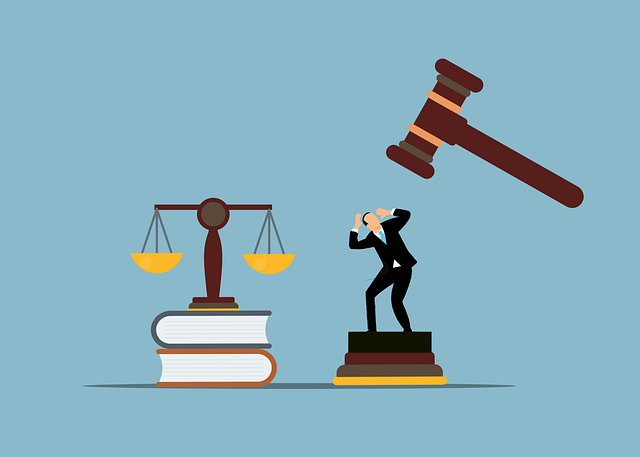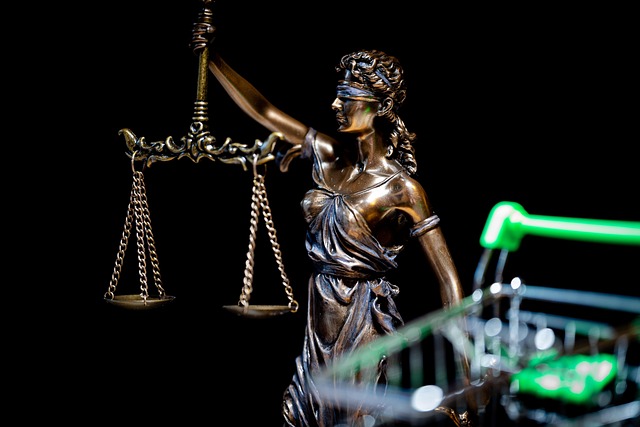Corporate crime investigations specialize in uncovering financial misdeeds, relying on evidence like financial records, emails, witness testimonies, and legal documents. This process, crucial for high-stakes cases with international reach, aims to identify perpetrators and secure justice through admissible evidence governed by jurisdiction-specific rules. Notable cases like Enron and Pfizer showcase the power of internal documents in exposing corporate wrongdoing, emphasizing the vital role of effective evidence management in ensuring accountability.
Corporate crime investigations are crucial for upholding ethical business practices and ensuring justice. This comprehensive guide delves into the intricacies of understanding, conducting, and presenting evidence in corporate criminal cases. From identifying basic elements to exploring legal considerations and real-world examples, we uncover the significance of various types of evidence collected. Learn how successful prosecutions rely on robust, admissible proof, with a focus on practical applications and strategic insights based on notable trials, highlighting the value of effective evidence management.
- Understanding Corporate Crime Investigations: The Basics
- Types of Evidence Collected in Corporate Criminal Cases
- Legal Considerations and Admissibility of Evidence
- Real-World Examples of Evidence in Corporate Trial Successes
Understanding Corporate Crime Investigations: The Basics
Corporate crime investigations are a specialized field focusing on financial and business-related misdeeds within corporations. These inquiries delve into complex matters, often involving fraud, corruption, or legal violations, to uncover the truth behind illicit activities. Understanding the basics of corporate investigations is crucial for both investigators and those who face such charges, as it dictates the strategies employed and the potential outcomes.
When examining examples of evidence in criminal trials, corporate investigations draw from a range of sources. This includes financial records, email communications, witness testimonies, and physical documents. The goal is to assemble a compelling case that leads to winning challenging defense verdicts or achieving extraordinary results for his clients. By meticulously analyzing these pieces of evidence, investigators can reconstruct events, identify perpetrators, and ensure justice is served.
Types of Evidence Collected in Corporate Criminal Cases
In corporate crime investigations, gathering robust evidence is paramount, especially in high-stakes cases that span across the country. This process involves sifting through various documents and digital assets to uncover crucial information. Examples of evidence in criminal trials can range from financial records, such as bank statements and accounting ledgers, which shed light on suspicious transactions or money laundering activities. These records are meticulously examined for anomalies, misappropriation, or fraudulent practices, serving as a cornerstone of the investigation.
Other significant pieces of evidence include emails, text messages, and digital communications that can reveal conspiracies, obstructed justice, or breach of fiduciary duties. In today’s digital era, electronic discovery (e-discovery) plays a pivotal role in unearthing hidden information across various platforms and devices. Moreover, witness testimonies, expert opinions, and physical evidence like contracts, legal documents, and proprietary materials contribute to constructing a comprehensive case throughout all stages of the investigative and enforcement process.
Legal Considerations and Admissibility of Evidence
In corporate crime investigations, legal considerations regarding admissibility of evidence are paramount. The rules governing what evidence can be presented in criminal trials vary by jurisdiction, but they share common principles aimed at ensuring fairness and reliability. For instance, evidence must typically be relevant, material, and authentic to be admitted. This includes documents, emails, financial records, and witness testimonies, which serve as examples of evidence in criminal trials. Judges play a crucial role in screening evidence to avoid indictment based on irrelevant or improperly obtained data.
Moreover, the unique aspects of corporate investigations, such as complex organizational structures and potential for unprecedented track record in addressing misconduct, can influence evidentiary admissibility. Companies with a complete dismissal of all charges in past cases may find it easier to demonstrate their commitment to reform, but they must still adhere strictly to legal standards. In contrast, those facing their first significant investigation may face more stringent scrutiny when presenting evidence to support their defense against corporate crime charges.
Real-World Examples of Evidence in Corporate Trial Successes
In recent years, several high-profile cases have showcased the significance of robust evidence in securing successful corporate crime investigations and subsequent trials. These real-world examples highlight how thorough and well-documented proof can lead to justice for victims and ensure accountability for wrongdoings within organizations. For instance, the Enron scandal, which involved fraudulent accounting practices, relied heavily on internal documents, financial records, and witness testimonies to expose the conspiracy. This case demonstrates that evidence collection across all stages of the investigative process is paramount in complex corporate fraud cases.
Another notable example is the Pfizer trial, where extensive documentation related to the sale of misbranded drugs played a pivotal role in the company’s prosecution. The court relied on comprehensive data, including sales records, marketing materials, and expert opinions, to establish the respective business’ liability. These instances illustrate that effective evidence management is crucial not only for individual clients but also for navigating the complex web of corporate and individual responsibilities during enforcement processes.
Corporate crime investigations require a meticulous approach, combining legal expertise with robust evidence collection. By understanding the basics, recognizing various types of admissible evidence, and learning from real-world successes, investigators can navigate complex cases effectively. These strategies ensure that relevant and compelling examples of evidence in criminal trials are presented, ultimately contributing to just outcomes.






